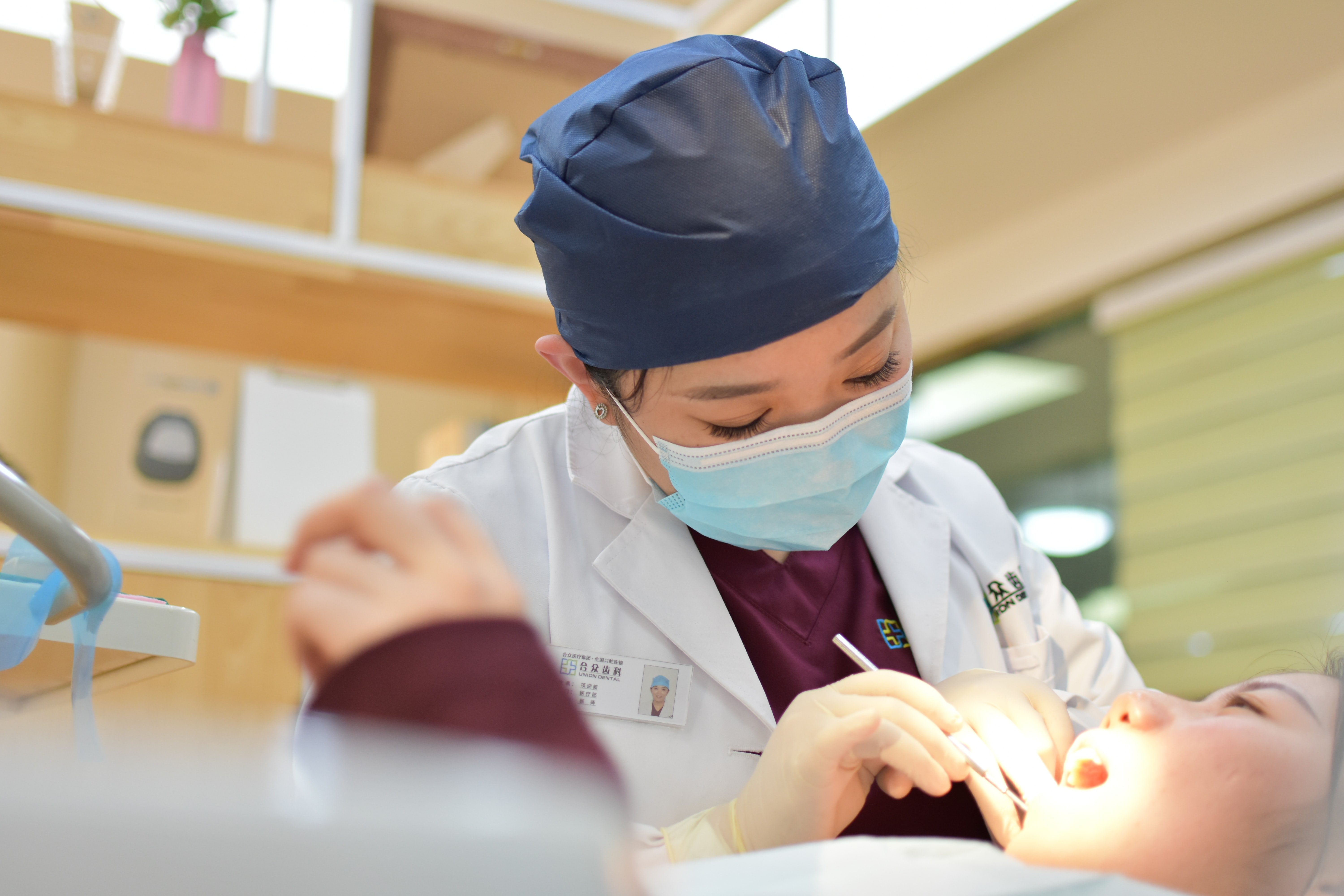Every hour of every day in the United States, someone dies of oral or oropharyngeal cancer, a cancer of the mouth and upper throat. Despite this horrible statistic, when oral cancer is detected early on and treated appropriately, treatment-related health problems are effectively reduced. This way, survival rates may increase.
Each April, the United States observes Oral Cancer Awareness Month. During this month, the Academy of General Dentistry, the American Academy of Oral Medicine, the American Academy of Oral and Maxillofacial Pathology, the American Academy of Periodontology, the American Association of Oral and Maxillofacial Surgeons, and the American Dental Hygienists’ Association join together with the non-profit organization, Oral Cancer Foundation, in a campaign to raise awareness of oral cancer screenings, as well as the importance of early detection.
As we recognize Oral Cancer Awareness Month, Advanced Indiana wants to emphasize that regular oral examinations performed by your oral health professional remain the best method for detecting oral cancer in its earliest stages. Today, in celebration of Oral Cancer Awareness Month, we thought it best to share the best ways to reduce your risk of oral cancer.
What Causes Oral Cancer?
Before we get to some of the most common signs and symptoms of oral cancer that you should be aware of, you must have an understanding of the causes of oral cancer. Put simply, according to the Mayo Clinic, mouth cancers form when cells either on the lips or in the mouth develop changes, or mutations, in their DNA. As abnormal mouth cancer cells accumulate, they can form a tumor. With time, these can spread inside the mouth, head, neck, and other parts of the body.
While it has not been identified what causes the mutations in squamous cells that lead to mouth cancer, doctors have identified factors that can effectively increase the risk of developing mouth cancer. Those risk factors are as follows:
- Tobacco use of any kind
- Excessive sun exposure to the lips
- Excessive alcohol use
- A weakened immune system
- Human papillomavirus (HPV)
Be Mindful of Oral Cancer Symptoms
The Oral Cancer Foundation’s “Check Your Mouth” initiative encourages the public to perform regular self-checks for the most common signs and symptoms of oral cancer in between their dental visits. If any of the following signs and symptoms are noticed and do not improve or disappear after 2-3 weeks, it is highly recommended that you see a dental professional immediately.
Signs and symptoms of oral cancer caused by tobacco usage and/or excessive alcohol usage may include one or more of the following:
- Sores or ulcerations that do not heal within 14 days
- A lump or thickening that develops inside the mouth
- A black, white, or red discoloration of the soft tissues of the mouth
- Abnormalities that bleed easily upon touch
- Raised tissue
- A painless, fixated lump felt on the outside of the neck that has been there for at least two weeks
- A lump or hard spot on the tissue that is usually situated on the border of the tongue
You should call your dentist immediately if you notice any of the above symptoms, especially if they are persistent.
How to Prevent Oral Cancer
While there is no known way to prevent oral cancer, there are specific preventative steps that you can take to reduce your chances of developing oral cancer. Take the following preventive steps into consideration as you work to keep your mouth healthy:
- Don’t use tobacco or stop using tobacco as soon as possible. If you want to reduce your chances of developing oral cancer effectively, you must quit smoking as quickly as possible. If you don’t use tobacco, make sure not to start. Using any form of tobacco greatly increases your chances of oral cancer as it exposes the cells in your mouth to dangerous chemicals which can cause cancer.
- Avoid excessive sun exposure to your lips. To significantly reduce the risk of developing oral cancer, we highly recommend avoiding excessive sun exposure to your lips. Protect the skin on your lips by staying in the shade as much as possible. Additionally, apply sunscreen to your lips as part of your routine sun protection regimen.
- Keep alcohol consumption moderate, if at all. Considering that excessive alcohol consumption has been linked to oral cancer, you should only drink alcohol in moderation to reduce your chances of developing oral cancer.
- Keep regular appointments with your dentist. Finally, one of the best ways to reduce your chances of developing oral cancer is to keep regular appointments with a dental professional. During routine dental exams, ask your dentist to inspect your entire mouth to check on any abnormal areas that may indicate mouth cancer or certain signs of precancerous formations.
Advanced Indiana For All Your Dental Needs
Now that you know the importance of reducing your risk of oral cancer and steps to take to do so, we’d encourage you to take these preventative steps not only during Oral Cancer Awareness Month, but every month of the year. As stated, one of the best ways to reduce your risk of oral cancer is by keeping regular appointments with your dentist. If you’re looking for a dentist in the Anderson or Fortville areas, Advanced Indiana has you covered.
If you notice any of the common signs and symptoms of oral cancer highlighted above or simply want to keep a thorough check on your oral health, our dedicated professionals are here for you. We offer all of the dental services you need to stay healthy in terms of your oral health. Book an appointment online today to get started! You can also give us a call at (765) 622-7000 (our Anderson office) or (317) 485-7000 (our Fortville office).

